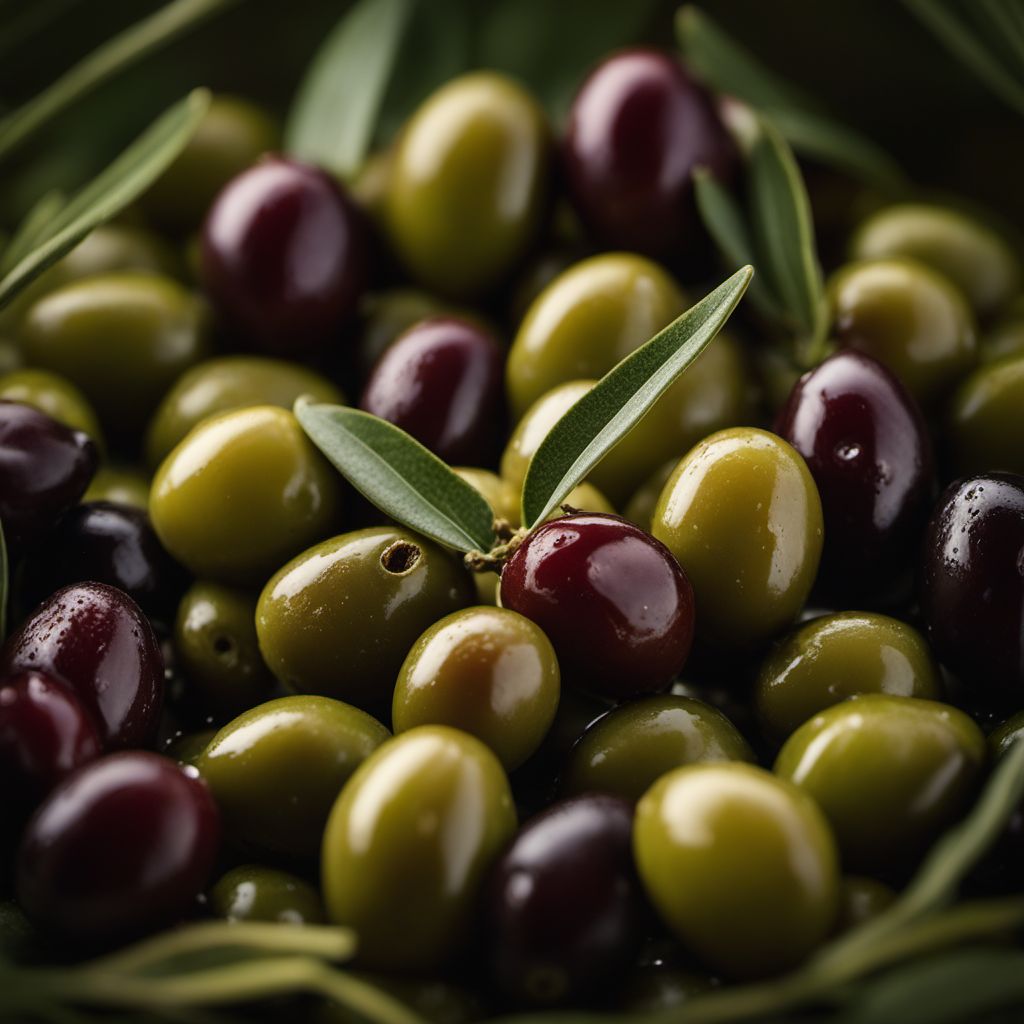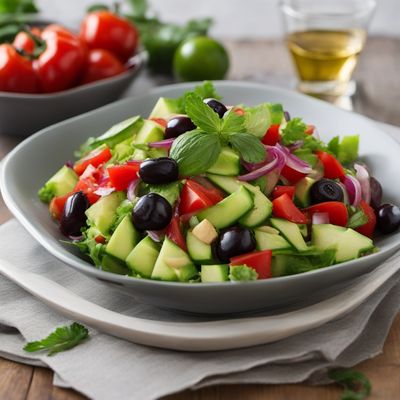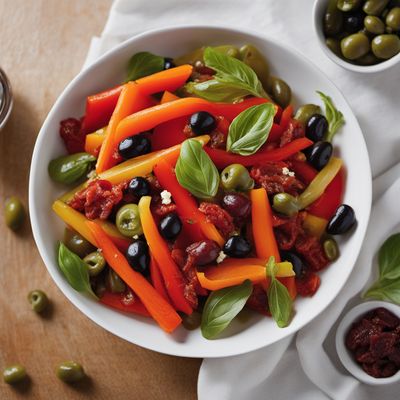
Ingredient
Olives, processed
The Mediterranean Delicacy: Processed Olives
Processed olives are harvested from olive trees and then cured or fermented to remove their natural bitterness. They are typically brined or marinated in oil, herbs, and spices to enhance their flavor. Processed olives come in various forms, including whole, pitted, sliced, or stuffed with ingredients like cheese or peppers. They have a firm texture and a rich, briny taste that adds depth to dishes.
Origins and history
Olives have a long history dating back thousands of years and are native to the Mediterranean region. They were cultivated by ancient civilizations such as the Greeks and Romans, who recognized their culinary and medicinal properties. Olives have since become a staple ingredient in Mediterranean cuisine and are enjoyed worldwide. Processed olives are a convenient way to enjoy the unique flavor of olives without the need for curing them at home.
Nutritional information
Processed olives are low in calories and a good source of healthy fats, particularly monounsaturated fats. They also contain antioxidants, such as vitamin E and polyphenols, which have been linked to various health benefits. However, they are high in sodium due to the brining process, so it's important to consume them in moderation.
Allergens
Processed olives may contain allergens such as tree nuts or dairy if they are stuffed with ingredients like almonds or cheese. It's important to read the label carefully if you have any allergies or dietary restrictions.
How to select
When selecting processed olives, look for jars or cans that are tightly sealed and free from any signs of spoilage, such as mold or off odors. Consider the type of olives you prefer, such as green or black, and whether you want them whole, pitted, sliced, or stuffed. Opt for high-quality brands that use natural ingredients and avoid excessive additives or preservatives.
Storage recommendations
To store processed olives, keep them in their original packaging or transfer them to an airtight container. Store them in the refrigerator to maintain their freshness and quality. Processed olives can be kept for several weeks or even months, depending on the specific product and packaging. It's important to check the label for any specific storage instructions.
How to produce
Olives can be grown in regions with a Mediterranean climate, including countries such as Spain, Italy, Greece, and Turkey. They require well-drained soil and plenty of sunlight. However, processing olives at home can be a time-consuming and complex process, so it is often more convenient to purchase them already processed.
Preparation tips
Processed olives can be enjoyed straight from the jar as a snack or added to various dishes. They are commonly used in salads, pizzas, pasta dishes, and sandwiches. Processed olives can also be pureed or chopped to make spreads, tapenades, or sauces. Experiment with different varieties and flavors to find your favorite combinations.
Culinary uses
Processed olives are commonly used in Mediterranean dishes such as Greek salads, pasta puttanesca, and tapenades. They are also a popular topping for pizzas and can be used to add flavor to sandwiches and wraps. The versatility of processed olives allows for endless culinary possibilities.
Availability
Processed olives are commonly available in grocery stores, supermarkets, and specialty food stores worldwide. They are cultivated and processed in Mediterranean countries such as Spain, Italy, Greece, and Turkey.
More ingredients from this category
Recipes using Olives, processed

Oriental-inspired Romanian Salad
Exotic Fusion: Oriental-Inspired Romanian Salad

Sicilian Pizzolo with a Twist
Mediterranean Delight: Sicilian Pizzolo with a Burst of Flavors

Haute Matambre Pizza
Elevating Argentinian Matambre: Haute Matambre Pizza

Ensalada Sevillana with a Twist
Andalusian Delight: A Refreshing Twist on Ensalada Sevillana

Portuguese Cod Rice
Savory Seafood Delight: Portuguese Cod Rice

Roasted Partridge with Catalan Flavors
Savory Delight: Partridge Infused with the Vibrant Tastes of Catalonia

Bacalhau à Brás
Savory Salted Cod Delight

Berber Spiced Flatbread Pizza
Savory Berber Delight: Spiced Flatbread Pizza

Insalata di Rinforzo with a Twist
Mediterranean Delight: Reinvented Insalata di Rinforzo

Insalata di Riso Novarese
Mediterranean Rice Salad: A Burst of Italian Flavors
